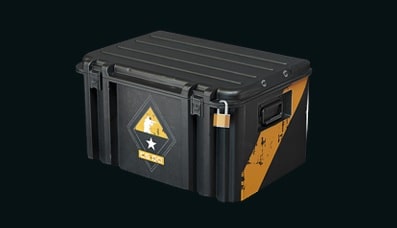Dasiwang: Your Gateway to Trending Insights
Stay updated with the latest news, trends, and insights across various topics.
Cracking the Code: What CS2 Cases Really Reveal About Your Luck
Uncover the secrets behind CS2 cases and how they reveal your luck. Dive into the surprising truth that could change your game!
The Mathematics of Luck: Understanding CS2 Case Drop Rates
The world of counter-strike, particularly with CS2 case drop rates, intertwines the realms of mathematics and chance in fascinating ways. Understanding the mechanics behind these drop rates is crucial for players and traders alike. The rates are not arbitrary; they are determined by complex algorithms that govern the frequency and type of cases players receive. These algorithms utilize a range of probabilities and can be compared to a lottery—not every player will be lucky enough to obtain a rare item, and the odds can change dramatically based on numerous factors, including time played and in-game achievements.
To illustrate this concept, consider the distribution of case drops as a statistical model where outcomes can be predicted to some extent. For instance, if a player opens multiple cases, the likelihood of acquiring a rare item can be analyzed using the principles of probability theory. Players can enhance their chances by engaging with the game during specific events when drop rates may be increased. The insight from analyzing CS2 case drop rates can lead to more informed decisions, and ultimately, a better gaming experience.

Counter-Strike is a highly popular tactical first-person shooter that emphasizes teamwork and strategy. Players can develop their skills through various gameplay mechanics, including techniques like cs2 quickswitch bind, which enhance their performance in matches. The game features different modes and maps, allowing for endless replayability and competition.
Unlocking the Mystery: How CS2 Cases Reflect Your In-Game Fortune
In the world of Counter-Strike 2 (CS2), the allure of weapon cases is not just about aesthetics; it's deeply intertwined with your in-game fortune. Each CS2 case contains a variety of skins and items, which can significantly influence your gameplay experience. As players dive into this mechanic, they often find themselves questioning how much their luck can sway the outcome. When you open a case, there's a mixture of excitement and anticipation that comes with the potential for rare and valuable items. This dynamic makes case openings a fascinating phenomenon, as players hope to unlock their in-game fortunes through sheer luck.
Moreover, the mystery of CS2 cases extends beyond luck; it reflects deeper psychological elements within the gaming community. Studies have shown that players often develop attachment to specific cases based on their perceived value and rarity, which enhances the thrill of opening them. Strategies for optimizing case openings have emerged among the player base, with discussions centered around timing, case selection, and even the psychological aspects of anticipation. As players explore these facets, they start to create a narrative around their in-game fortunes, making the experience of unlocking CS2 cases more than just a chance-based endeavor—it's a journey filled with hopes, dreams, and the allure of virtual treasure.
Are You Truly Lucky? Analyzing Patterns in CS2 Case Openings
The phenomenon of luck in video games has always intrigued players, particularly in popular titles like Counter-Strike 2 (CS2). Many gamers believe that opening cases, which contain random skins and items, is purely a game of chance. However, a closer look at player behavior reveals that certain patterns may exist. By analyzing large datasets from case openings, players can discern trends that suggest some individuals might not be as lucky as they perceive. For instance, CS2 case openings often feature common items far more frequently than rare ones, leading to speculation about the underlying probabilities at play.
To truly evaluate whether you are lucky in CS2 case openings, consider tracking your own results over time. Start by maintaining a log of the items you receive each time you open a case. This can be done using a simple spreadsheet or item-tracking tools available online. By doing this, you can identify whether your luck aligns with statistical expectations. In the end, understanding the intricacies of your own case opening history may provide clarity on luck versus mathematical reality, helping you answer the question: Are you truly lucky?